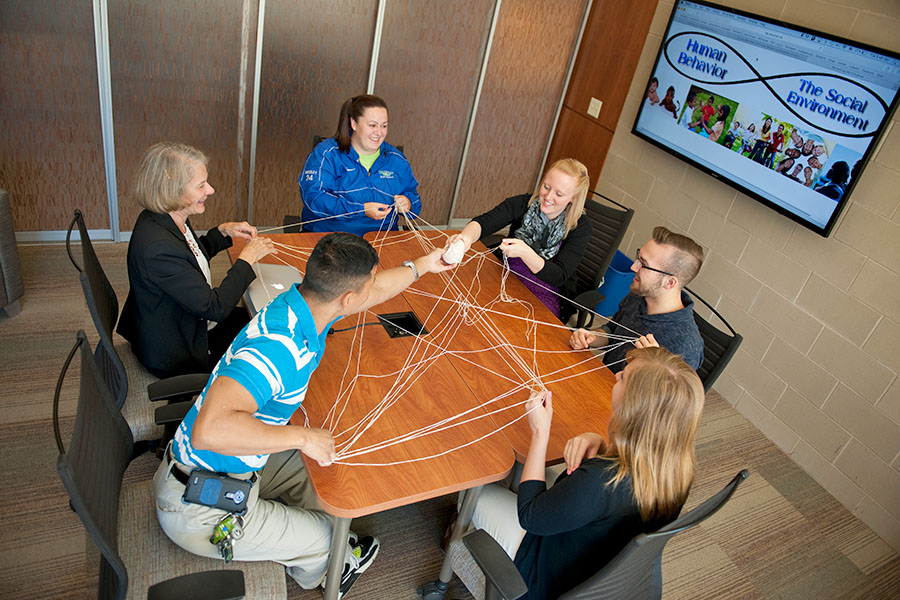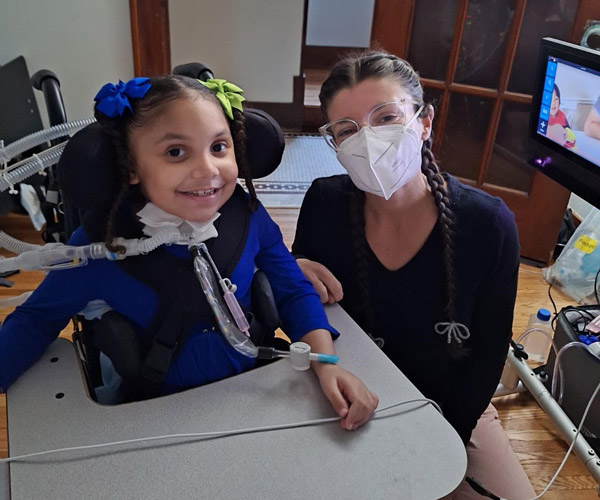Sociology
Bachelor of Arts
Sociology isn't just the study of people in groups.
It's the science that can help us understand opportunities and obstacles in our day-to-day lives and lend insight into many of the biggest problems facing society: political unrest, income inequality, racism, sexism, and environmental problems. This flexible, supportive program has faculty who are committed to engaging, inclusive, and effective teaching practices. Gain skills applicable to a wide range of occupations in teaching, counseling, journalism, marketing, human resources, communications, politics, non-profit work, and international relations.

Highlights
Unique classes on contemporary topics are revised each year to stay current
Carry out independent research and present your work at Nazareth's annual all-day showcase
Flexible requirements make double majoring or adding a minor easily doable within four years
Service-learning projects, off-campus trips, and internships complement classroom learning



Career Paths
- Community organizations
- Counseling
- Human services
- Market research
- Labor relations
- Public relations
- Criminal justice
- Education
Internships
- Nelson Mandela International School, Berlin, Germany
- Empire Justice CASH (Creating Assets, Savings, Hope) Program
- The Compliance Search Group, NYC
- Monroe County Office of Probation
- Rochester Razorsharks
Employers
- Rochester General Health System
- University of Rochester
- First Niagara Risk Management
- Baltimore County Public Schools
99%
of new Nazareth grads are employed or in grad school within six months of graduation
1,631
high-impact experiential learning experiences completed by the undergraduate class of 2024
$4,000
Our SPARK Grant provides up to $4,000 for you to pursue internships, research, and study abroad. SPARK details »
Want to teach?
For elementary school (birth to grade 6): You can double major in sociology and in inclusive early childhood/childhood education, for a curriculum that includes both sociology and teaching younger children, preparing you to get teaching certification.
Changemakers
We prepare you to be a changemaker by helping you see how larger social forces are at play "behind the scenes" in the obstacles and opportunities we each encounter every day. We also emphasize how collective action is the key to resolving many of our most vexing social problems. The sociology major builds the skill of seeing the world from the point of view of others; graduates often say that the program has helped them be more open-minded, objective, and understanding of social and cultural differences and the challenges faced by those who are different from themselves.
Program Director

Alumni Spotlight
Sarah Spano '20, '24G (sociology and inclusive early childhood and childhood education; inclusive childhood education, with an early intervention specialist advanced certificate)
"Nazareth's sociology program gave me the language to describe my lived experience, which proved to be incredibly powerful to my life. I was given tools to don 'sociology goggles' and see the ways various identities can intersect to shape experiences of other folks. I was also able to go out in the community and conduct both qualitative and quantitative research. When I started school, I thought education was a space for objectivity, that 'me' and 'my' did not exist in those spaces. Nazareth made it clear that I not only belonged in that space, but that my subjective experience mattered and was important, and empowered me to understand that my voice matters.
"As a home/hospital teacher through the Rochester City School District, I meet with students 1:1, typically in the student's home. I learned the importance of diversity and inclusion in my time at Nazareth, and have begun to understand the complex social and cultural dynamics at both a local and national level that shape my students' lives every day. Attending Nazareth fundamentally changed my life for the better, and it is a privilege to continue to learn with my students every day!"